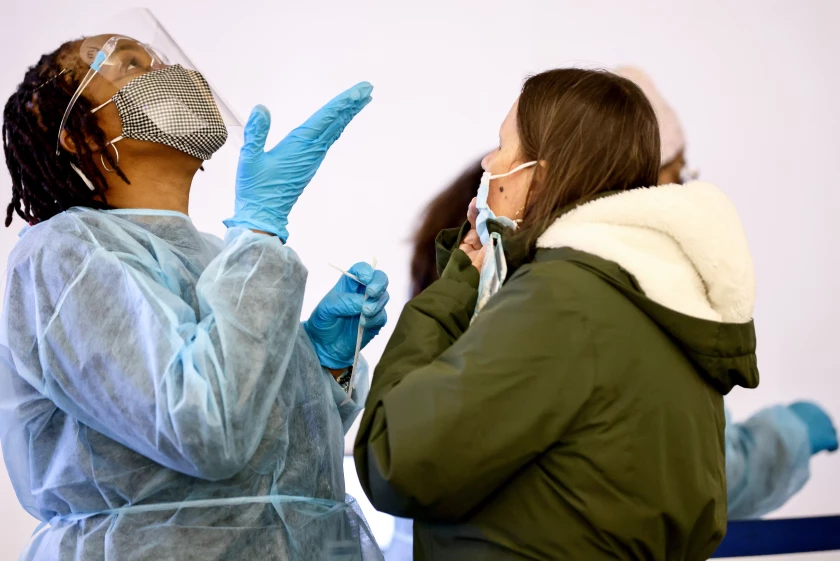Since the Omicron variant was discovered, officials say the best defense is vaccines and booster doses.
So how effective does the vaccine lose if that booster is not given?
San Francisco Health Director Grant Colfax recently presented the first data to city health commissioners, showing why booster enforcement is so essential.
Much effectiveness
According to the data, while the Pfizer or Moderna series of vaccines confer around 86 percent effectiveness against hospitalization shortly after the second dose in case of an Omicron infection, this drops to 67 percent as the dose decreases. immunity, but returns to 91 percent after a boost.
A booster dose results in “A dramatic increase in protection against hospitalization – 91 percent – almost the level it was with Delta,” Colfax said.
People should know that the effectiveness of the vaccine against a symptomatic case by Omicron is reduced compared to Delta, Colfax added. With the new variant, the vaccine’s effectiveness against a symptomatic episode just after the second dose of Pfizer or Moderna was 30 percent, and it fell only 5 percent when immunity waned, but rose to 48 percent after a booster.
The vaccines were more effective against Delta. The vaccine’s effectiveness against symptomatic cases was 87 percent just after the second dose of Pfizer or Moderna, dropping to about 43 percent when immunity waned, but rising again to 93 percent after a booster.
British data
The data presented by Colfax is one of several nascent reports, and others show different numbers. Early reports from Britain, for example, indicate that the vaccine’s effectiveness against symptomatic Omicron infection is 88 percent shortly after the second dose of Pfizer, falling to 34 percent about six months after the second dose. , but increases to 76 percent after a boost.
By comparison, British data shows that, against Delta, the vaccine’s effectiveness on symptomatic cases was also 88 percent shortly after the second dose of Pfizer, dropping to 64 percent almost six months after the second dose to return. to increase to 93 percent after applying a boost.
A peak for early January?
According to the US Centers for Disease Control and Prevention (CDC), initial forecasts suggest that a large increase in infections could be reached in early January, and that “the daily maximum number of new incidents could exceed the peaks previous ”.
Dr. Anthony Fauci, President Biden’s chief medical adviser, in an interview with ABC said that, during this wave, almost everyone “will become infected, particularly those who are not vaccinated, or are just going to be vaccinated.”
“And vaccinated people, particularly with applied boosters, will be protected from infection. If they are infected, they will have a relatively mild picture, “added the doctor, who expects a peak in cases from Ómicron soon, in a matter of weeks, followed by” an equally drastic decline. ”
Fauci stressed that Ómicron’s transmissibility is extraordinary. “Certainly this is unprecedented; See how fast any single virus spreads around the world. It is extremely unusual, ”he commented.

